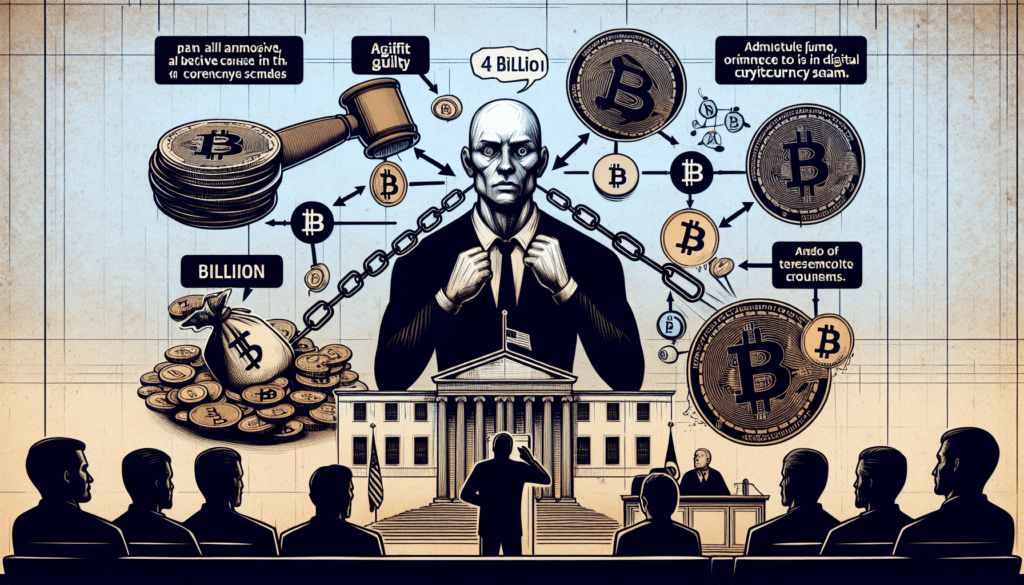In a significant development in the world of cryptocurrency fraud, a Russian individual, accused of orchestrating a massive $4 billion Bitcoin scam, has admitted partial guilt in a United States courtroom. This case has captured the attention of both the crypto community and law enforcement agencies worldwide, marking a pivotal moment in the crackdown on digital currency fraud. The suspect’s partial plea sheds light on the complexities of cryptocurrency crimes and signals a strong message against illegal financial activities in the digital space. Stay tuned as this high-profile case unfolds, revealing the depths of one of the most notable financial scandals in recent history.
Win Up To 93% Of Your Trades With The World’s #1 Most Profitable Trading Indicators
In a significant development in a high-profile cybercrime case, Alexander Vinnik, a Russian national linked to a massive $4 billion Bitcoin fraud, has taken a step towards resolving his legal troubles in the United States by entering a partial guilty plea. This move comes as part of a plea deal with prosecutors, potentially reducing his prison sentence to less than 10 years—a significant decrease from the life sentence he was facing.
Vinnik, infamously known as the mastermind behind the BTC-e cryptocurrency exchange, which has been accused by the U.S. authorities of facilitating money laundering and various cybercrimes, was arrested in Greece in 2017. His arrest marked the beginning of a lengthy extradition saga involving several countries. He was first extradited to France, where he was convicted of money laundering and sentenced to five years in prison. Following his sentence in France, he was then extradited to the United States, where he is currently awaiting trial.
The U.S Department of Justice alleges that Vinnik’s operation of BTC-e contributed significantly to the world of cybercrime, providing a platform for laundering money for a multitude of criminal activities while offering anonymity to its users. The case against Vinnik in the U.S heeds a maximum penalty of 55 years in prison, underlining the seriousness of the charges against him.
Vinnik’s partial guilty plea signifies a crucial turning point in this case, indicating the culmination of negotiations between his defense and the prosecutor’s office. It suggests a mutual agreement to resolve the matter in a way that benefits both sides, avoiding the unpredictability of a full trial.
This case has drawn international attention, highlighting the complex and often murky world of cryptocurrency and cybercrime. As this saga nears a resolution, it sheds light on the global efforts to clamp down on illegal activities facilitated by the anonymity of digital currencies.
For cybersecurity experts and legal professionals around the globe, Vinnik’s case serves as a pivotal example of the intricate dance between evolving technology and the law. It underscores the challenges and necessity of international cooperation in combating cybercrime, ensuring that the digital frontier is not left lawless.
As the legal proceedings continue, the tech and legal communities will undoubtedly watch closely, eager to see how this high-stakes case concludes and what it means for the future of cybercrime prosecution and cryptocurrency regulation.
Win Up To 93% Of Your Trades With The World’s #1 Most Profitable Trading Indicators
1. What did the Russian suspect plead partially guilty to in the US?
The Russian suspect admitted to some charges related to a $4 billion Bitcoin fraud.
2. Is the Russian suspect facing charges for the full $4B fraud amount?
No, they partially admitted guilt, which means they didn’t confess to the entire $4 billion fraud but did acknowledge some wrongdoing.
3. What crime was the Russian linked to?
They’re connected to a massive Bitcoin fraud worth around $4 billion.
4. What will happen next after the partial guilty plea?
The plea might lead to reduced charges or a sentence, but the suspect will still face legal proceedings for the remaining charges.
5. Why did the suspect only plead partially guilty?
The specific reasons aren’t detailed, but it could be a strategy to negotiate for lesser charges or penalties.
Win Up To 93% Of Your Trades With The World’s #1 Most Profitable Trading Indicators
Win Up To 93% Of Your Trades With The World’s #1 Most Profitable Trading Indicators






